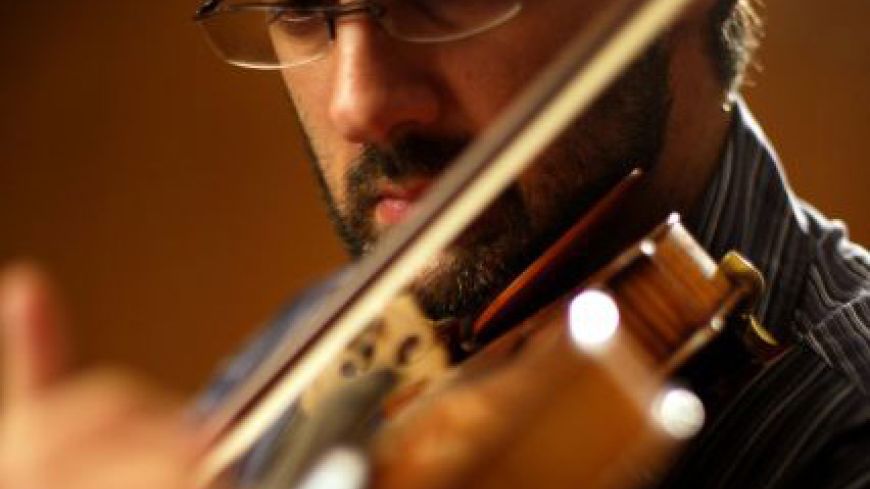
Onto the stage comes Stéphane Denève and, in his inimitable way, with the orchestra behind him ready to play, not only welcomes us but explains something of the music ahead. After all, the title Angelic Memories forewarns; but he fills us with enthusiasm and no apology for the emotional music ahead.
The pavane was a slow processional dance that enjoyed great popularity in the courts of Europe during the sixteenth and seventeenth centuries. Maurice Ravel had a passion for this period and the Orchestra started the concert with his Pavane for a Dead Princess, written for piano in 1899 and then orchestrated by him in 1910. Perhaps a little too slow to start, or maybe by design, the horns warmed up and we enjoyed dance music that would have been so familiar to a princess.
The best known work by the Austrian composer, Alban Berg, is his Violin Concerto of 1935. Berg died shortly before its first performance; he had written it after hearing of the death from polio of the eighteen year old Manon Gropius. She was the daughter of Alma Mahler by her second marriage to the architect Walter Gropius.
The Royal Scottish National Orchestra was joined by the very highly regarded violinist, Leonidas Kavakos, who showed he was more than able to tackle some of the very difficult solo passages. The concerto is structured in two movements, each divided into two. The first two represent life, the second two represent death and transfiguration. After the performance an older man told me that music like this would normally be turned off had it been played on Radio Three in his house. Despite that though, he was glad to have heard it through - but would still describe it as modern music.
After the interval came Antonin Dvořák's romantic Symphony No 7, first performed in London in 1885. This symphony in four movements, is an emotionally roiling work, typical of its era and, especially by the third movement, exciting to hear and watch as Stéphane Denève masterfully conducted his Orchestra.
By no means a full house, probably because of a programme of less known pieces intended for a discerning audience, it was a thoroughly fulfilling concert.
Event: Friday 16 October 2009 7.30 pm, RSNO most Friday nights throughout the winter. £5 for students, Under 16's free.

